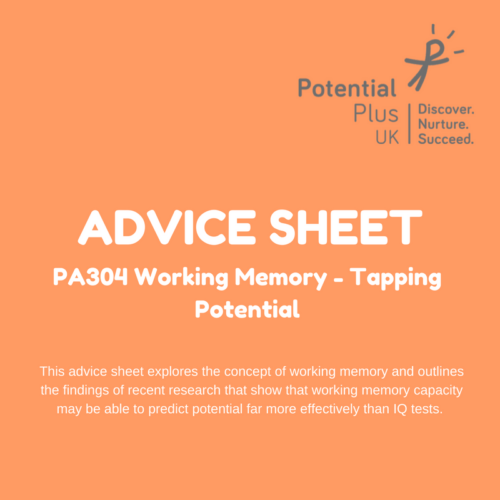Sensory processing difficulties affect how a child interprets, organises and responds to the information they receive through their eight senses. In more severe cases, such difficulties can significantly affect participation in activities of daily life. There is no single set of symptoms. Sensory processing difficulties is used as an umbrella term for a variety of neurological, sensory-based disorders including dyspraxia. A common characteristic of children with high learning potential (HLP) is a heightened sensory perceptiveness.This fact sheet discusses the symptoms of sensory processing difficulties and outlines pathways to diagnosis and support for parents, carers or teachers of children with sensory processing difficulties and high learning potential.
F05 Sensory Processing Differences and High Learning Potential
£0.00
Description
Sensory processing differences affect how a child interprets, organises and responds to the information they receive through their eight senses. In more severe cases, such difficulties can significantly affect participation in activities of daily life. There is no single set of symptoms. Sensory processing differences is used as an umbrella term for a variety of neurological, sensory-based disorders including dyspraxia. A common characteristic of children with high learning potential (HLP) is a heightened sensory perceptiveness. This fact sheet discusses the symptoms of sensory processing differences and outlines pathways to diagnosis and support for parents, carers or teachers of children with sensory processing differences and high learning potential.





